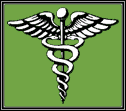Medical and Regulatory Law Specialist Barristers | England, Wales, UK | London, Manchester & Regional

INQUEST REPRESENTATION
Specialists in Inquest Law and Coroners Court Cases
Our barristers have represented many different interested persons and organisations at inquests over the years. Our barristers can advise on evidence, witness testimony, preparation for an inquest, and represent parties at inquests.
Cases we have covered include:
- Deaths in Custody
- Infant Deaths in Obstetric Units
- Deaths on the Roads
- Deaths in Hospitals
- Alleged Suicides
- Suspicious Deaths
- Workplace Accidents
- Overseas Deaths
- Poisonings and Drug Overdoses
- Neglect
- Gross Negligence Manslaughter Allegations
- Homicide Allegations
- Deaths on Ships
Contact us now in confidence on 0845 652 0451 for a no obligation chat.
For more details of our legal services see: Our Areas of Work
Further Information on Inquests
What is an inquest?
An inquest is a court hearing, presided over by a coroner, held when a death occurs which has come about unexpectedly, or through violent means, or when the deceased is under the control of the state. The coronial process is a complex area of law and we have written a bespoke website which summarises coronial law and procedure.

